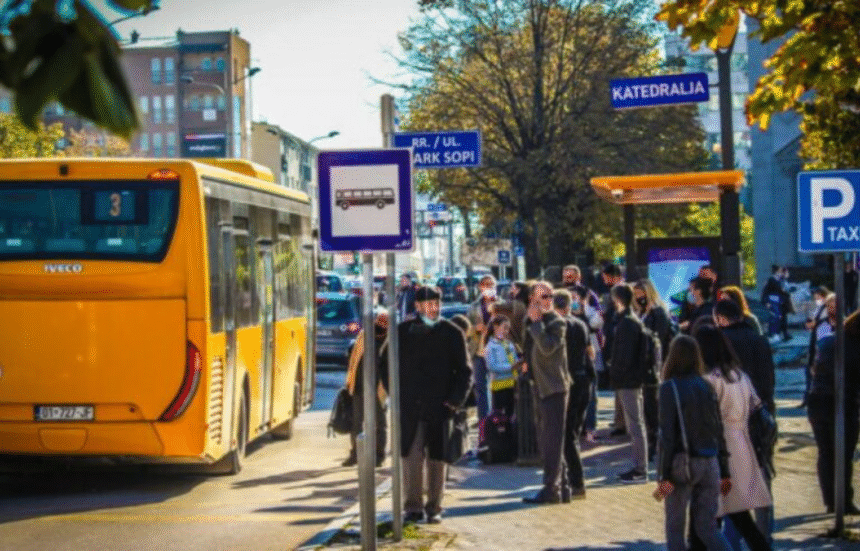In addition to enduring heavy traffic, residents of Prishtina are facing mounting challenges with the city’s public transport system, particularly due to the overcrowding of urban buses. While the municipal government has previously announced the procurement of 30 new buses, it remains unclear when they will be delivered and operational. Meanwhile, transportation experts argue that expanding the public bus fleet is crucial not only to ease the burden on passengers but also to reduce overall traffic congestion in the capital.
Prishtina residents who rely on public buses for their daily commutes are increasingly dissatisfied with the service. Complaints center around a limited number of buses, especially on certain key lines. Citizens told Radio Kosova that buses are often packed to capacity, making it difficult to board, let alone find a seat. The problem is especially acute during peak hours, affecting students, workers, and the elderly who depend on public transportation the most.
“We face transport issues almost every day. Buses are overcrowded, especially on Line 4, which I take to Kodër e Diellit. In the mornings and afternoons when I go to and return from work, there’s barely any room to get on, let alone sit down. It’s really necessary to increase the number of buses in the city. There are too few, and they’re overloaded, especially during rush hours,” one commuter explained to Radio Kosova.
The urgent need for more buses is echoed by transportation expert Nol Dedaj, who emphasized that increasing the number of buses would significantly improve both mobility and traffic flow in the city. “Adding more buses is essential because it will help ease traffic congestion. A single bus can transport 60 to 100 passengers, which means fewer cars on the road. Currently, many passengers are left standing without available seats,” he stated.
Despite the pressing demand, the Municipality of Prishtina has yet to provide a clear timeline for the arrival of the new fleet. Luftar Braha, the municipality’s expert on Digitalization and Telecommunications, told Radio Kosova in a written response that the procurement process for the 30 new buses is still under evaluation, managed by the European Bank for Reconstruction and Development (EBRD).
“The procurement process for the 30 new buses is currently in the evaluation phase and is being managed by the EBRD. As a municipality, we cannot make assumptions about how the process will unfold until all necessary procedures are completed, including those related to loan disbursement from the EBRD. Therefore, it is still too early to give an exact date for the buses’ arrival. Of the total 30 buses, 24 will run on diesel (Euro 6 standard) and six will be electric. In parallel, we are working closely with private transport operators to modernize the existing fleet. According to contractual obligations, all operators are required to acquire new Euro 6-compliant buses within one year of signing,” Braha stated.
While the municipality continues to work toward long-term improvements, the current transport infrastructure is failing to meet growing demand. Enhancing public transport is not only key to improving mobility and reducing wait times for passengers, but also vital for lowering traffic congestion and environmental pollution in the city.







